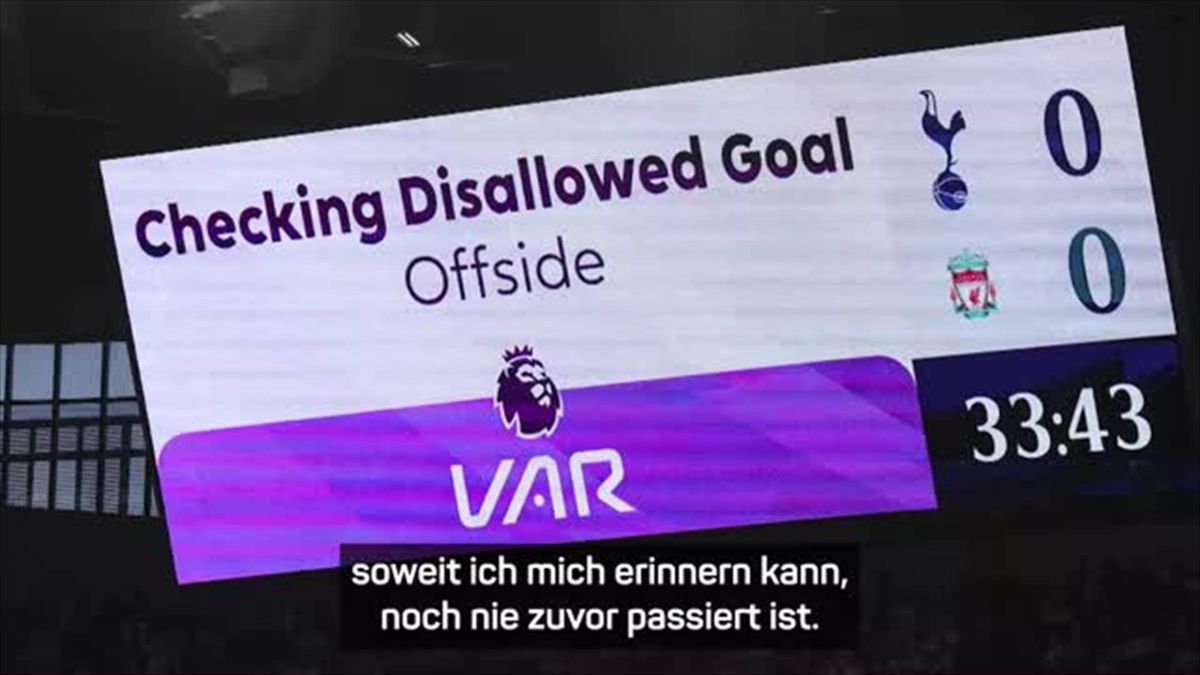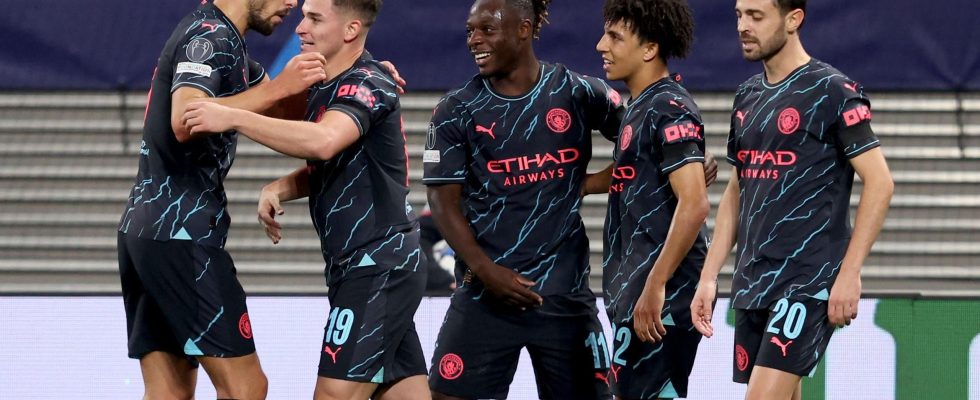In a one-sided game that was largely one-sided, Phil Foden gave coach Pep Guardiola’s team the lead in the first half (25′). Shortly after the break, Louis Openda equalized with one of the few good RB attacks (48th).
Manchester City leads Group G with six points after two matchdays, ahead of Leipzig with three points. They are followed by Red Star Belgrade and Young Boys Bern with one point each.
Three things we noticed in the Champions League game between RB Leipzig and Manchester City.
1.) Betrayal of RB house politics
Pep Guardiola praised RB Leipzig highly before the game. The Saxons follow a stringent philosophy, from management to coaches to transfers. That will lead to success in the long run.
In his analysis, Guardiola also had a certain style of play in Leipzig in mind. The classic RB game idea with aggressive pressing is now also known internationally and the Catalan still knows the Leipzig team from his time in Munich and from the duels with ManCity in the last two Champions League seasons.
But what Leipzig offered in the first half had almost nothing to do with the football from the RB cosmos. The hosts were hanging deep in their own half, just running behind, not getting into duels and therefore hardly winning the ball for transition moments. The first 45 minutes were a betrayal of the RB house policy and an offer for Manchester City, who were confident on the ball and combined well.
Even if the style of play didn’t correspond to Leipzig’s wishes, as Xaver Schlager explained to “DAZN”: “The plan wasn’t to defend so deeply. If you want to press, they solve it well and there’s a center forward with top speed in front, I don’t know. You can’t throw everything forward, you need balance. Sometimes we found it, sometimes not.”
The only positive thing about the weak first half: it was only 0-1. And that was quickly equalized after the break. In the second half, Leipzig was much more present, started more aggressively and often involved the English in duels. Overall, RB lacked the punch that evening to be able to stand up to City for 90 minutes.
2.) Lewis, Doku, Alvarez: City’s “Next Generation”
Erling Haaland? Signed out for long stretches. Jack Grealish? Pleasant, but hardly any move towards the goal. Bernardo Silva? Solid after an injury break, but still a bit away from his top form. The big names of the City offense were not needed on a permanent basis that evening because City’s squad offers a lot of options.
For example, 18-year-old Rico Lewis. The young Englishman was the dominant player in the first half. On the right half lane he moved excellently in the spaces, was able to turn up again and again, set the pace towards the goal and also prepared Phil Foden’s 1-0 goal excellently. With his technique, his agility and his acceleration, he was almost impossible for Leipzig’s defense to grasp.
The Leipzig team often came too late against ManCity youngster Rico Lewis
Photo credit: Getty Images
After the break, like the rest of the City team, he found it a little more difficult, but Pep still had two aces that he was able to bring from the bench and they set up the other two goals from each other.
Julian Alvarez is about to take the next step in his career in the absence of Kevin de Bruyne. In the first group game against Red Star Belgrade, the Argentine was the decisive player with two goals. His dream goal also paved the way to victory in Leipzig.
The fact that he perfectly prepared the 3-1 with his assist on the counterattack for 21-year-old Jeremy Doku in stoppage time once again underlined the Argentine’s impressive form.
3.) National players are overwhelmed by space at this level
Germany’s problem in the full-back positions is well known. With Benjamin Henrichs, RB Leipzig has a possible alternative for the DFB team, at least on the right. However, he was injured against Manchester City.
But there is also a German national player in the RB squad on the left: David Raum. And his limitations were clearly shown in this game. Raum was completely overwhelmed against the strong City side with Rico Lewis and Bernardo Silva. City’s offensive players repeatedly started into the open spaces at Raum’s back. His duel rate was underground with 17 percent of duels won.
In addition to the glaring defensive weaknesses, space was also not a factor offensively. In the moments when he had space on his left lane, his crosses were harmless and imprecise. What was particularly noticeable in the game against City’s passing machine: Raum’s deficits in passing speed and passing accuracy.

After VAR mistake: Klopp calls for a replay

